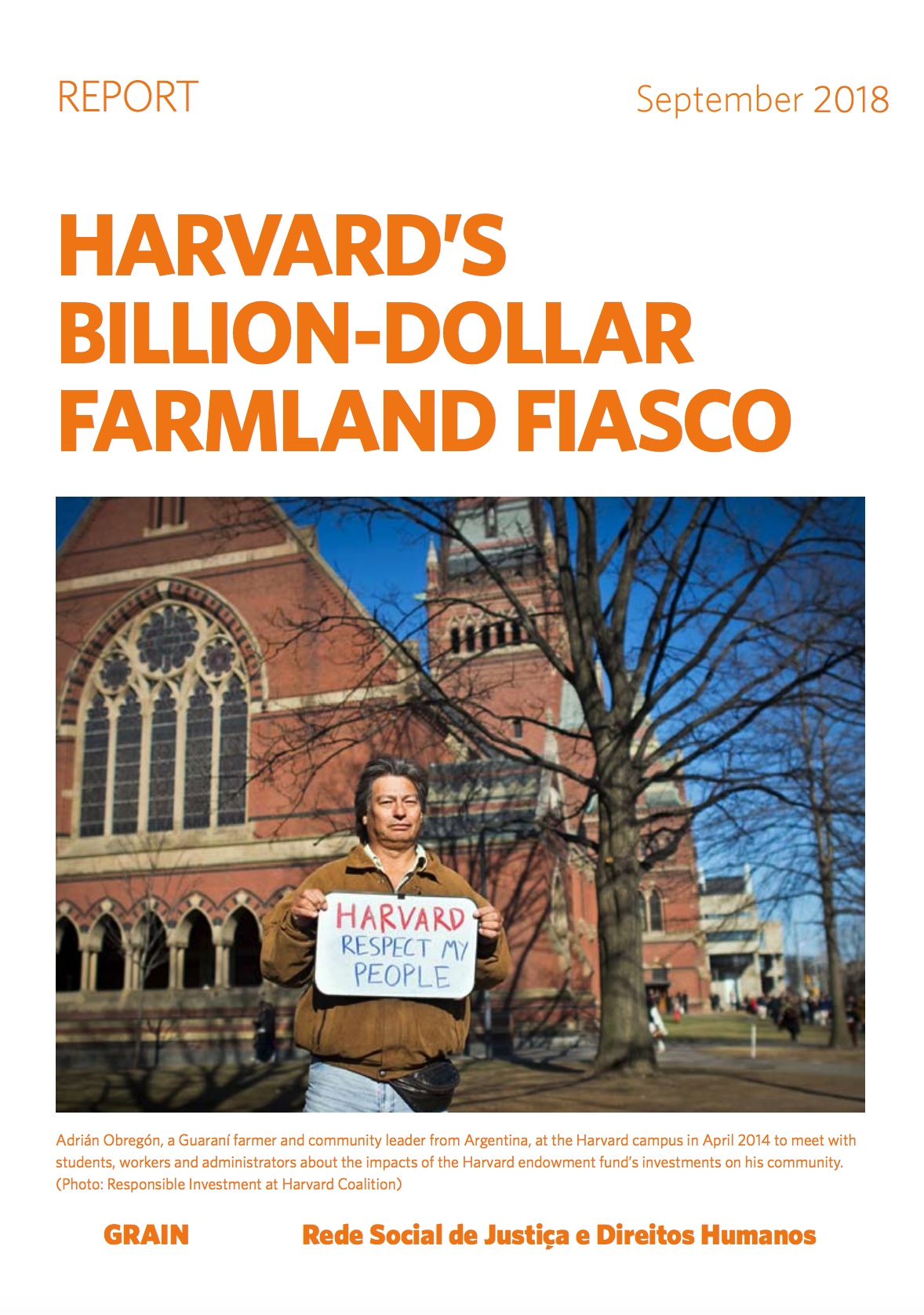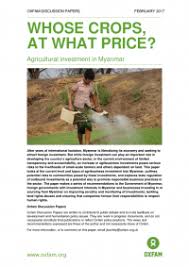Harvard's billion-dollar farmland fiasco
One of the world's major buyers of farmland is under fire for their involvement in land conflicts, environmental destruction and risky investments. A new report by GRAIN and Rede Social de Justiça e Direitos Humano presents, for the first time, a comprehensive analysis of Harvard University's controversial investments in global farmland.
The report finds that:







